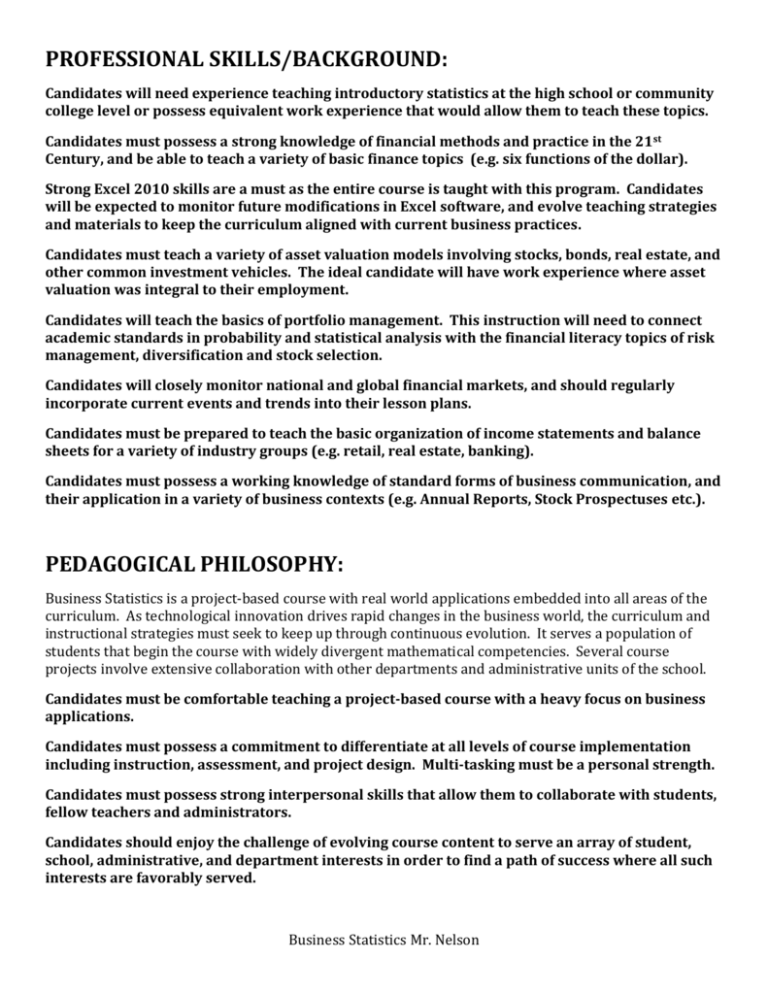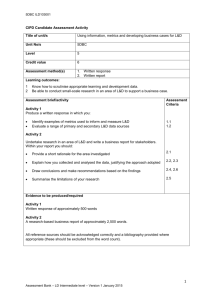What qualifications make a good candidate to teach Business
advertisement

PROFESSIONAL SKILLS/BACKGROUND: Candidates will need experience teaching introductory statistics at the high school or community college level or possess equivalent work experience that would allow them to teach these topics. Candidates must possess a strong knowledge of financial methods and practice in the 21st Century, and be able to teach a variety of basic finance topics (e.g. six functions of the dollar). Strong Excel 2010 skills are a must as the entire course is taught with this program. Candidates will be expected to monitor future modifications in Excel software, and evolve teaching strategies and materials to keep the curriculum aligned with current business practices. Candidates must teach a variety of asset valuation models involving stocks, bonds, real estate, and other common investment vehicles. The ideal candidate will have work experience where asset valuation was integral to their employment. Candidates will teach the basics of portfolio management. This instruction will need to connect academic standards in probability and statistical analysis with the financial literacy topics of risk management, diversification and stock selection. Candidates will closely monitor national and global financial markets, and should regularly incorporate current events and trends into their lesson plans. Candidates must be prepared to teach the basic organization of income statements and balance sheets for a variety of industry groups (e.g. retail, real estate, banking). Candidates must possess a working knowledge of standard forms of business communication, and their application in a variety of business contexts (e.g. Annual Reports, Stock Prospectuses etc.). PEDAGOGICAL PHILOSOPHY: Business Statistics is a project-based course with real world applications embedded into all areas of the curriculum. As technological innovation drives rapid changes in the business world, the curriculum and instructional strategies must seek to keep up through continuous evolution. It serves a population of students that begin the course with widely divergent mathematical competencies. Several course projects involve extensive collaboration with other departments and administrative units of the school. Candidates must be comfortable teaching a project-based course with a heavy focus on business applications. Candidates must possess a commitment to differentiate at all levels of course implementation including instruction, assessment, and project design. Multi-tasking must be a personal strength. Candidates must possess strong interpersonal skills that allow them to collaborate with students, fellow teachers and administrators. Candidates should enjoy the challenge of evolving course content to serve an array of student, school, administrative, and department interests in order to find a path of success where all such interests are favorably served. Business Statistics Mr. Nelson






